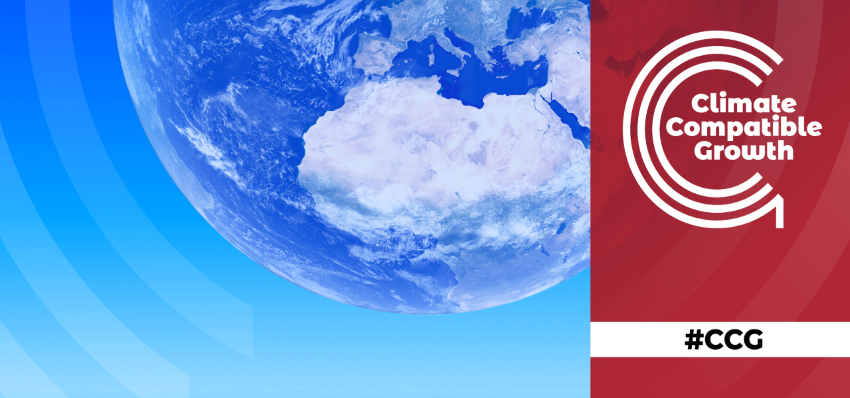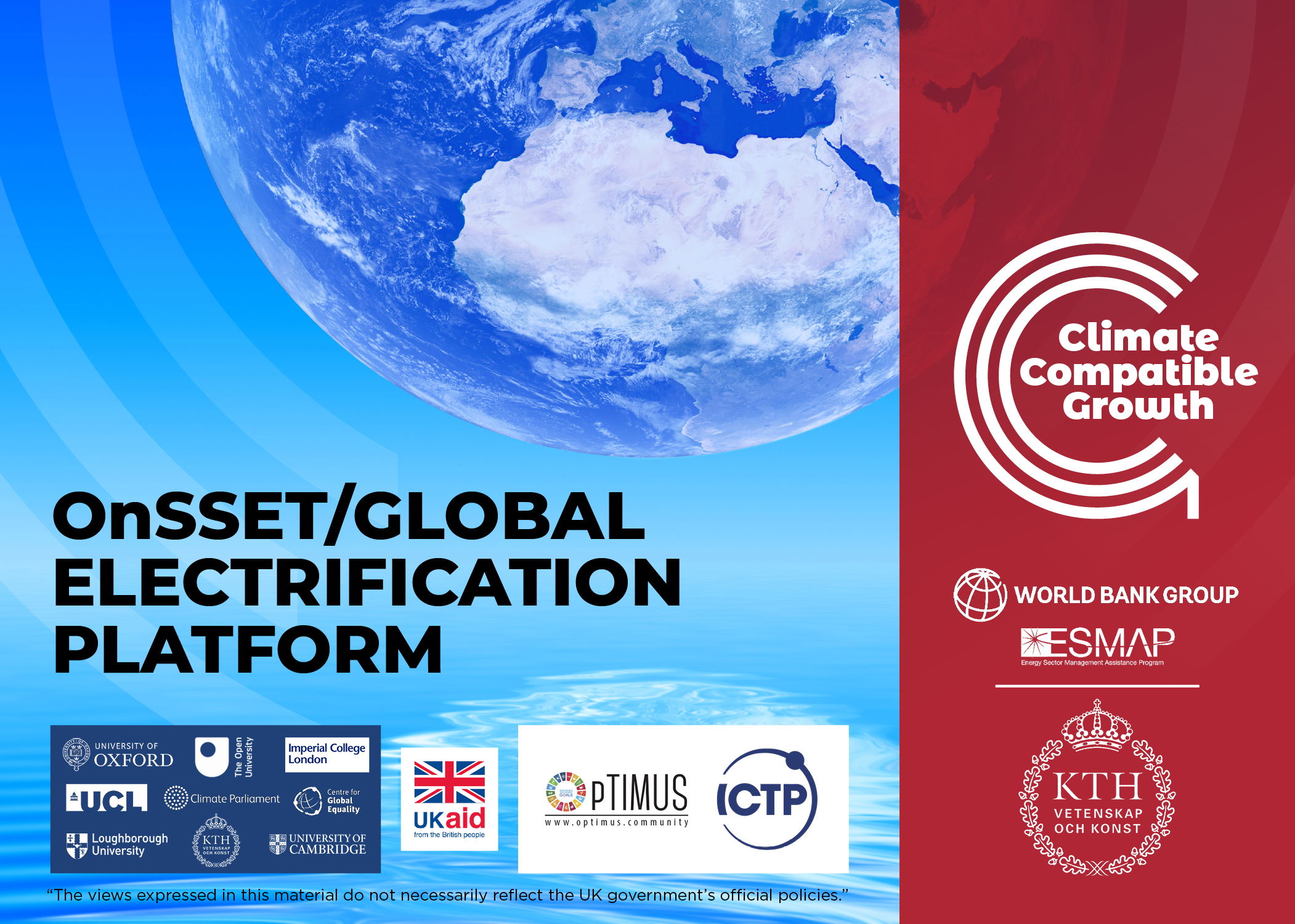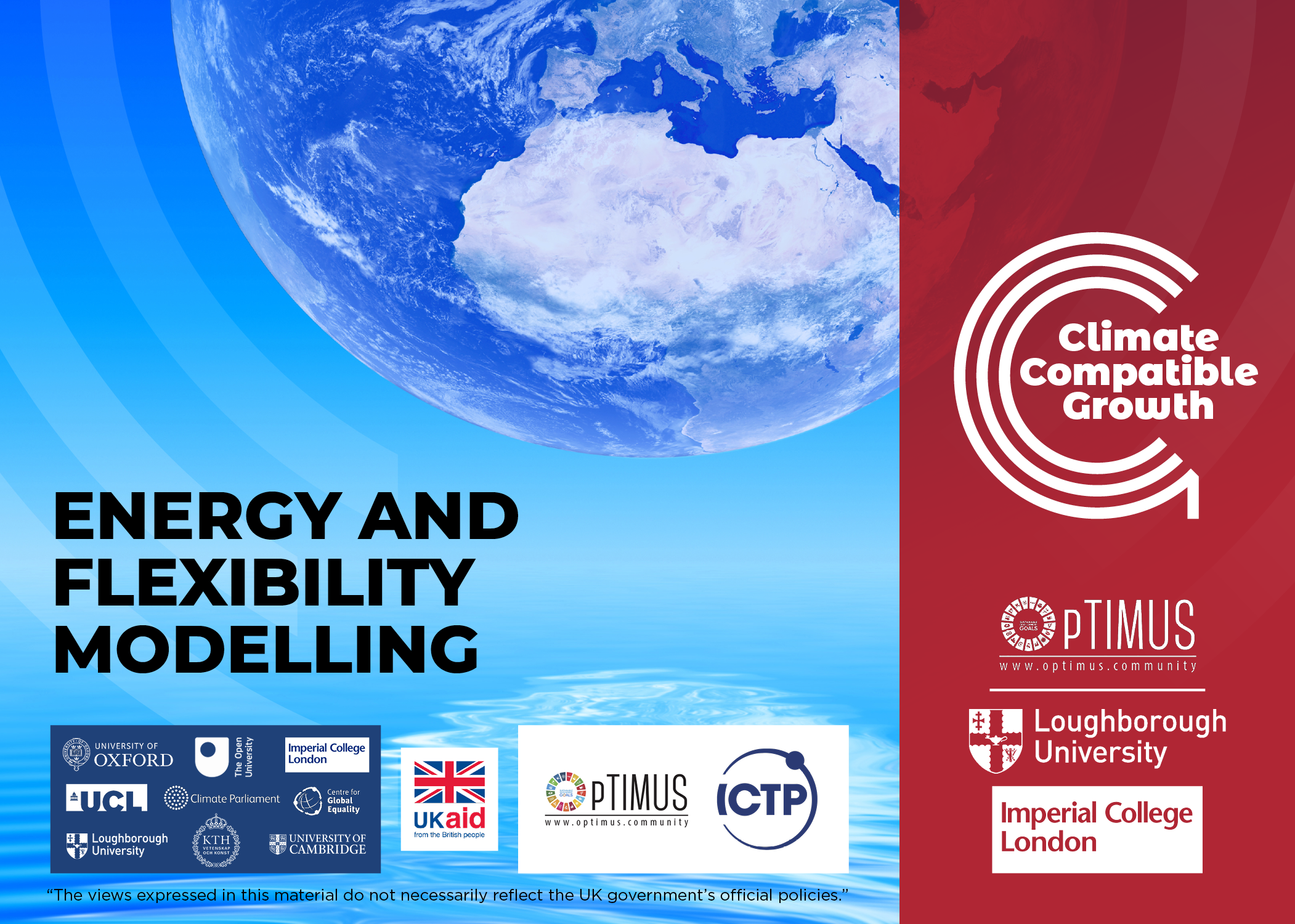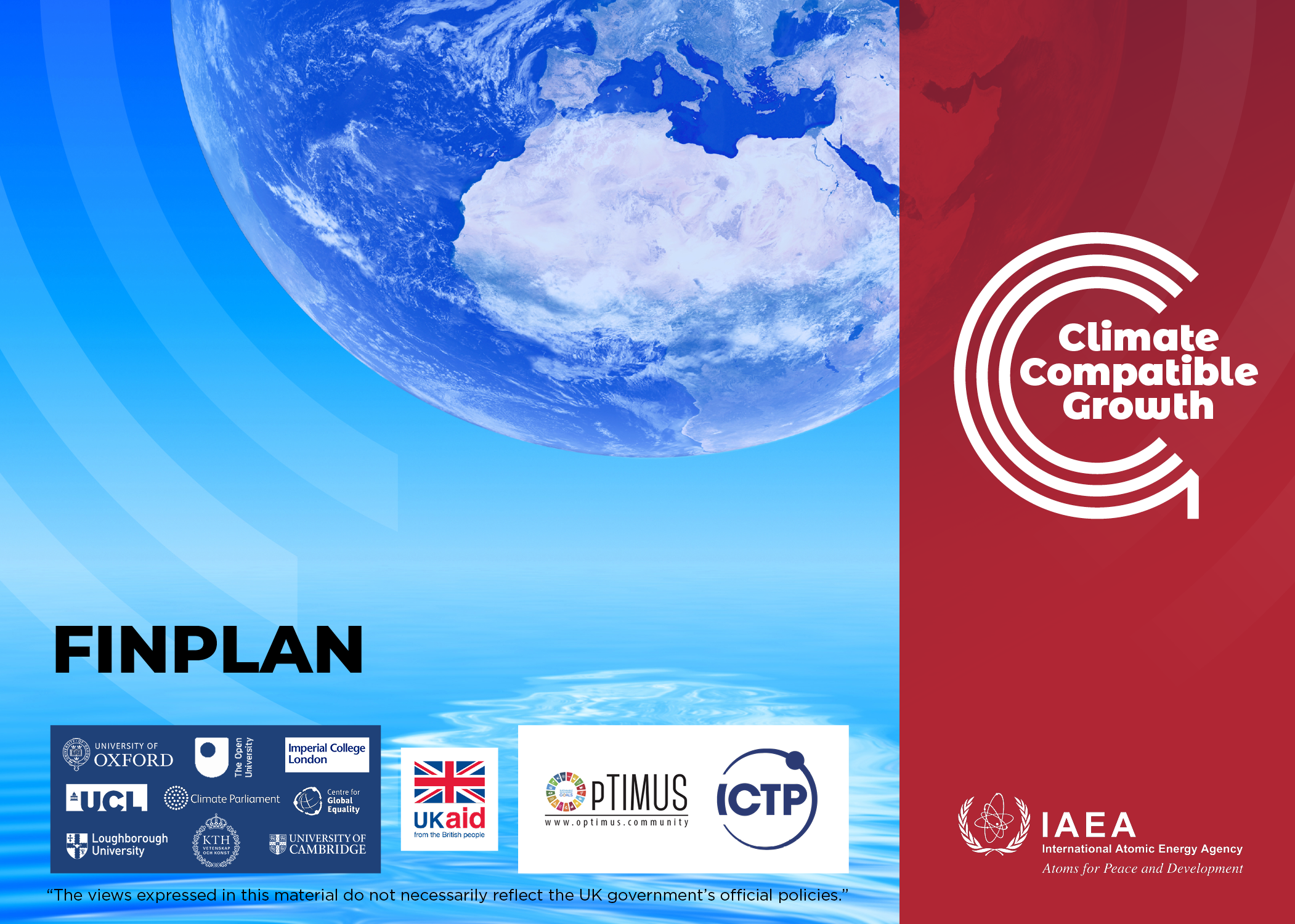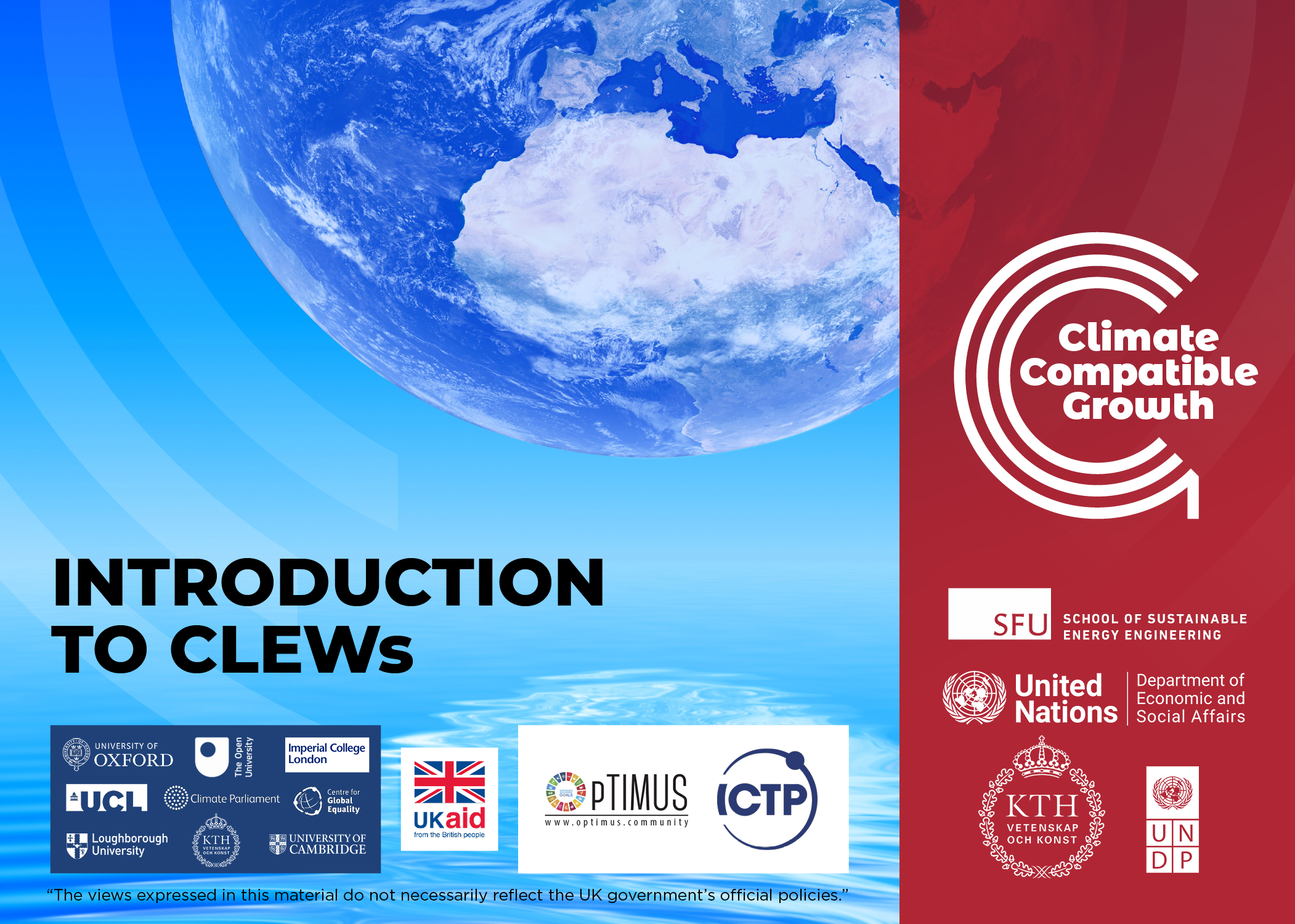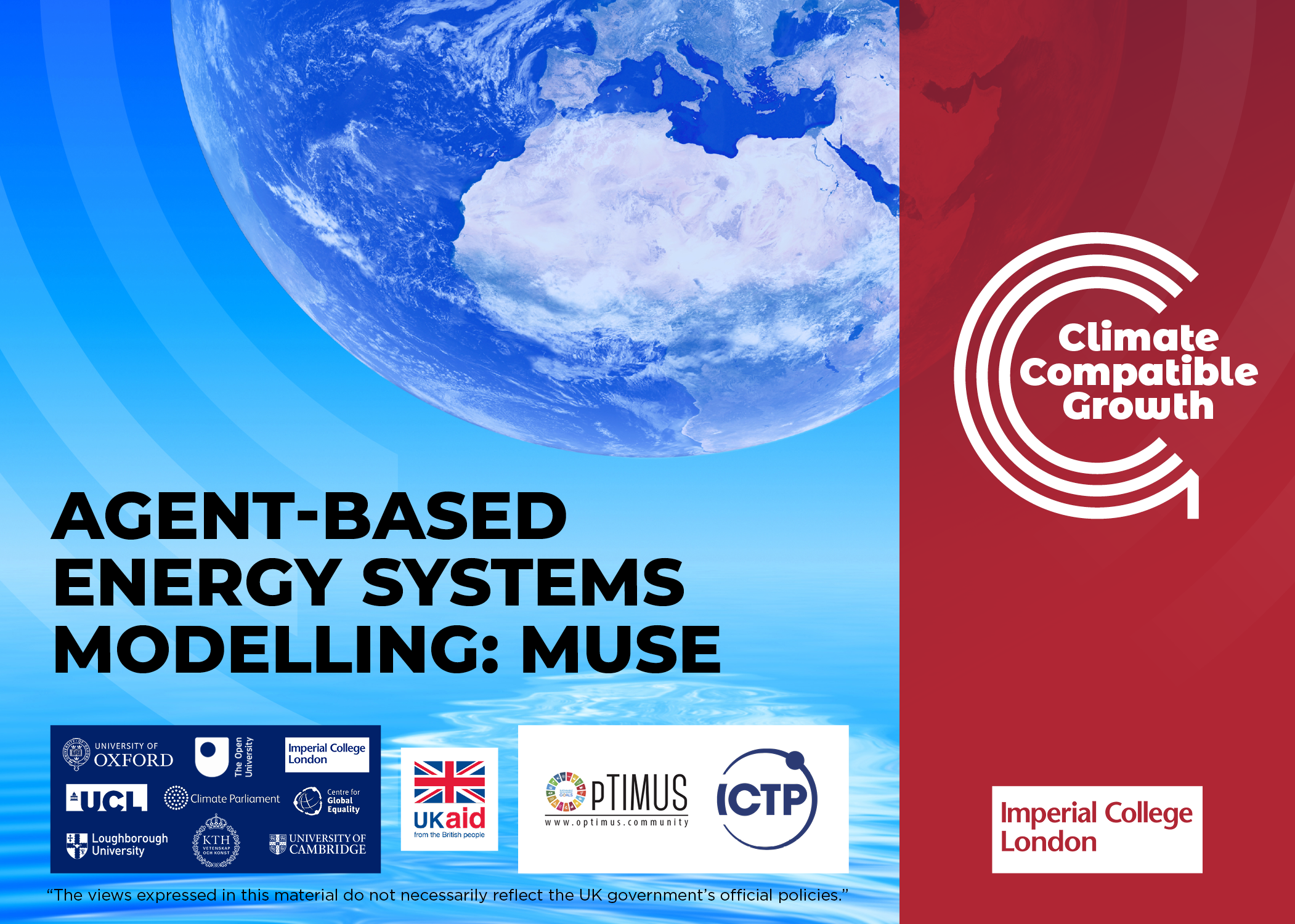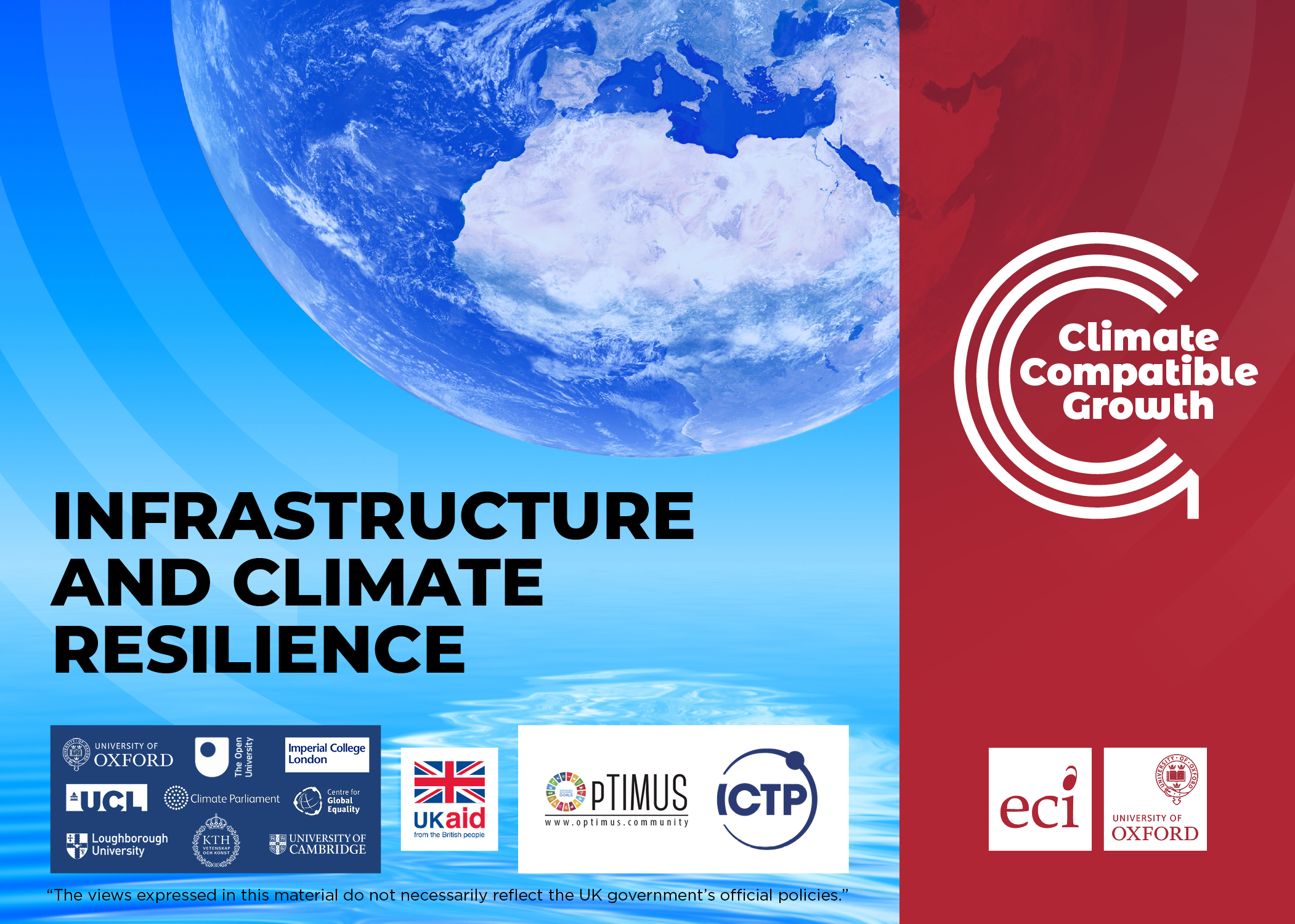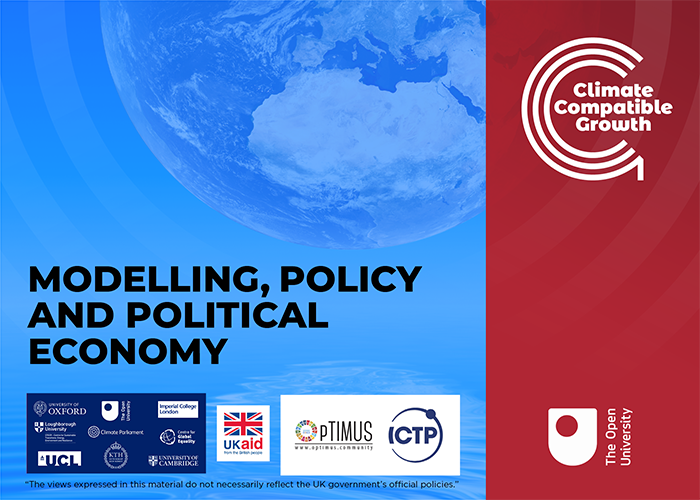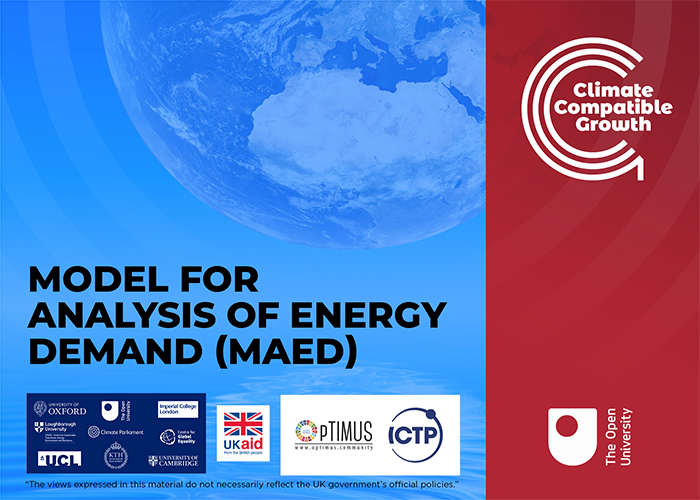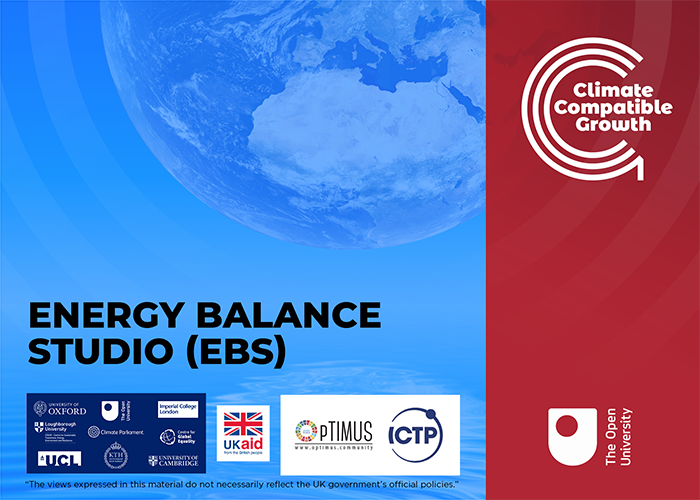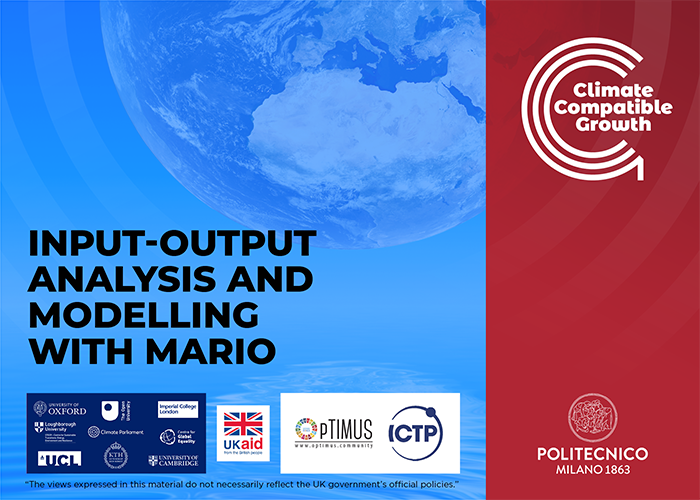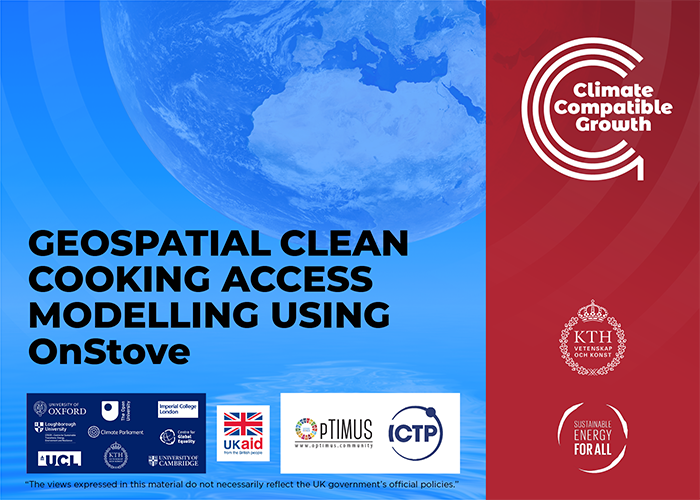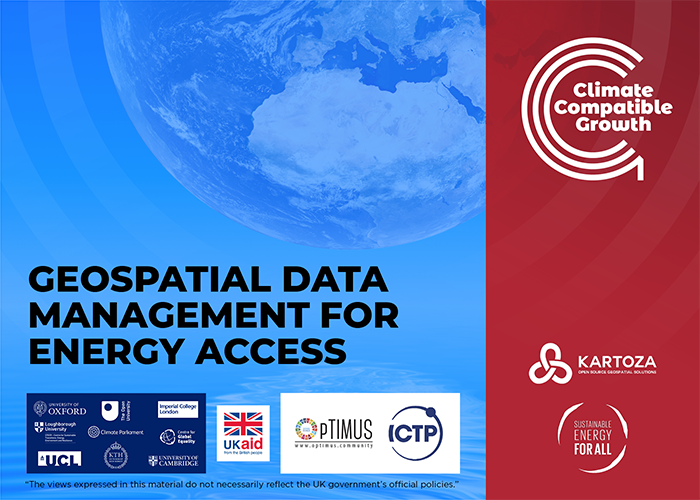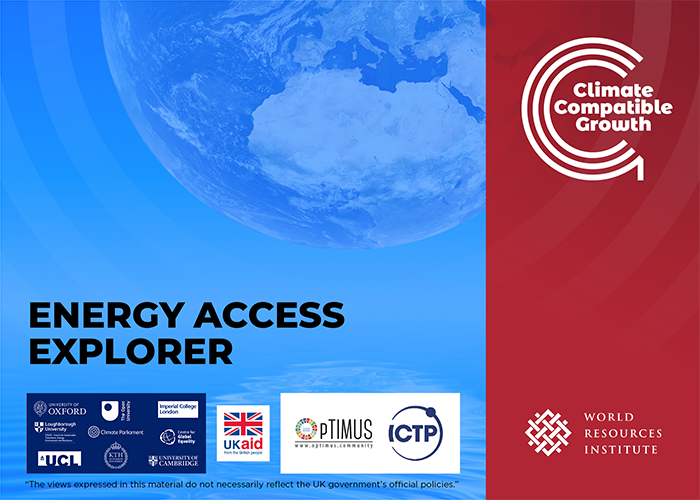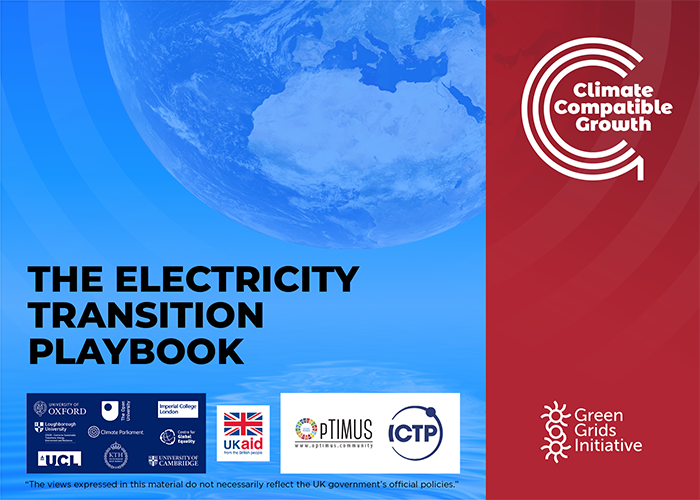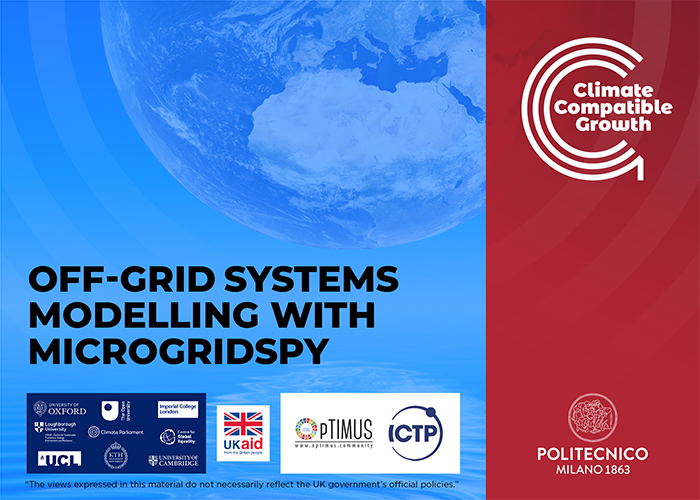This collection is developed by a set of important UN and International Organizations together with the Climate Compatible Growth (#CCG) program. They focus on simple toolkits used to develop energy balances; energy projections; energy investment; emissions
and renewable integration modelling; integrated Climate, Land, Energy, and Water modelling; system of systems modelling; and basic energy infrastructure financing.
Climate Compatible Growth (#CCG) is a UK government, ODA-funded research programme supporting investment in sustainable energy and transport systems to meet development priorities.
We believe in partnership. These courses are open to all and we invite you to join us as we join with others to develop capacity for better evidence-based policy making with analysts and academics from across the world. The tools are open source and have been developed by forward-looking organizations, who know the importance of community accessibility, continuous improvement, and accountability.
We believe that the future needs to be co-created with open minds and with shared knowledge and tools. Alone you can go fast, together we can go far. Please watch the video below for an introduction to the purpose and importance of these courses. It is recommended that you hold down the Crtl button on your keyboard and click on the link below to open it in a new window.
This site provides access via hypertext links to resources in other web sites for browsing only and in so doing we are not endorsing any linked entities nor authorising any act which may be in breach of copyright or any other third party rights which are protected in law or by international treaties world-wide. Please be aware these external sites usually have their own terms and conditions.
Certificates of participation will be awarded from 4 April 2024.
-
Energy and Flexibility Modelling: OSeMOSYS & FlexTool (Windows)
(WINDOWS version) Participants will learn to use energy modelling tools to understand the investments needed to meet growing energy demands alongside environmental and energy security constraints, while assessing system flexibility to account for high renewables penetration.
Course
32 hrs
-
Energy and Flexibility Modelling: OSeMOSYS & FlexTool (MAC)
(MAC version) Participants will learn to use energy modelling tools to understand the investments needed to meet growing energy demands alongside environmental and energy security constraints, while assessing system flexibility to account for high renewables penetration.
Course
32 hrs
-
Energy Demand Projections with MAED (Model for Analysis of Energy Demand)
This course will teach participants how to use the International Atomic Energy Agency (IAEA) modelling tool called the Energy Balance Studio (EBS). Participants will learn the theory behind energy balances, and how to use the EBS tool to construct energy balances.
Course
20 hrs
-
Input-Output analysis and modelling with MARIO
The main goal of the course is to introduce you to the fundamentals of quantitative impact assessment methods and models. These quantitative models are specifically designed to assess the prospective environmental and economic impacts resulting from the application of technological or policy interventions at meso and macro-scale, comprehensively including supply-chain effects in a Life Cycle perspective.
Course
40 hrs
-
Geospatial clean cooking access modelling using OnStove
In this course you will be introduced to OnStove, an open-source spatial clean cookingtool identifying the best cooking solutions across any given area based on their costsand benefits. The track will take you from start to finish, from creating your own spatialrepository to modifying your spatial data, calculating the net-benefits of differentcooking solutions and lastly visualizing and presenting your results.
Course
32 hrs
-
Off-Grid Energy Systems Modelling with MicroGridsPy
Explore the computational aspects of energy system modelling, delve into the technological components of third-generation minigrids, and discover MicroGridsPy, an open-source Python framework for optimal sizing of minigrids.
Course
40 hrs

